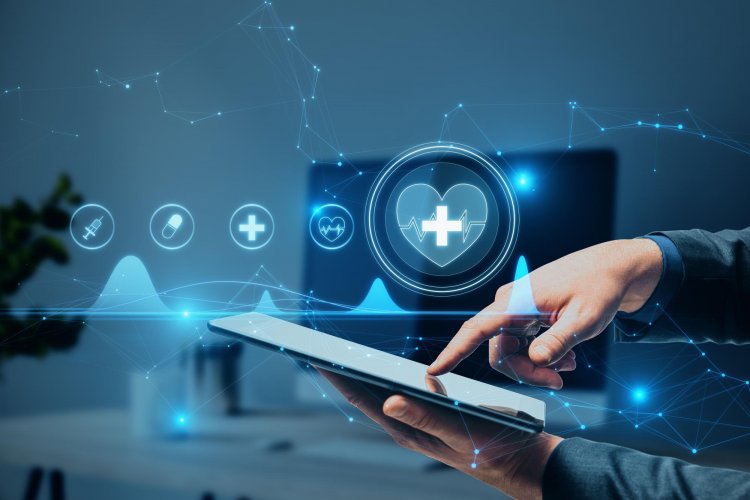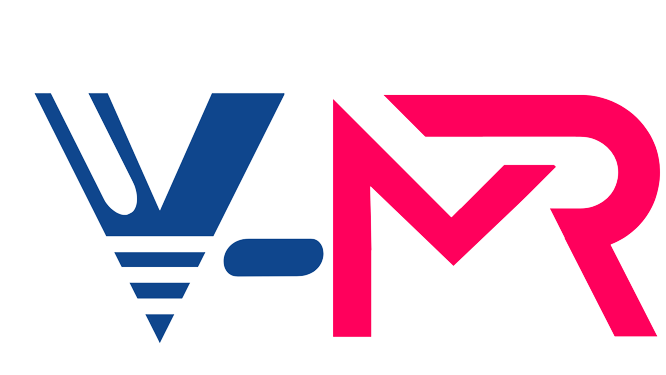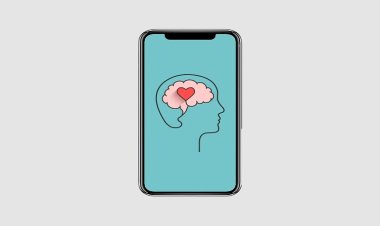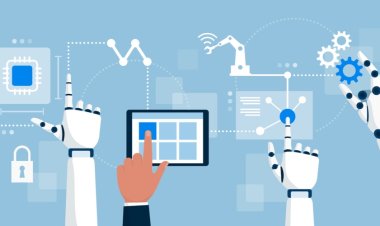Global mHealth Market Size to Reach $125.2 Billion at a CAGR of 10.23% by 2030
Vantage Market Research expects the mHealth Market to reach USD 125.2 Billion by 2030, exhibiting a growth rate (CAGR) of 10.23% during 2023-2030.

The Global mHealth Market size reached USD 57.2 Billion in 2022. Vantage Market Research expects the market to reach USD 125.2 Billion by 2030, exhibiting a growth rate (CAGR) of 10.23% during 2023-2030.
Table of Content [TOC]
|
Introduction |
|
2. The Rise of mHealth: Transforming Healthcare Through Technology |
|
3. Understanding mHealth: Defining Mobile Health and its Applications |
|
3.1 Remote Patient Monitoring: Enhancing Chronic Disease Management |
|
3.2 Telemedicine and Teleconsultation: Bridging the Gap in Healthcare Access |
|
3.3 Fitness and Health Apps: Empowering Users for Better Health |
|
4. The Promising Future of mHealth: Leveraging AI, Wearable Technology, and Interoperability |
|
4.1 AI and Machine Learning in mHealth: Revolutionizing Diagnostics and Decision Support |
|
4.2 Wearable Technology: Real-Time Monitoring for Early Detection and Proactive Care |
|
4.3 Interoperability and Integration: Strengthening Connectivity Between mHealth and EHRs |
|
5. Conclusion: Embracing the mHealth Revolution for a Better Healthcare Future |
Revolutionizing Healthcare: Exploring the Booming mHealth Market
The healthcare sector has recently experienced a wave of transformation spurred on by technology breakthroughs. Mobile health, or mHealth, has emerged as a game-changer among these advances, revolutionizing the way healthcare services are provided and received. MHealth has the ability to close the communication gap between patients and healthcare professionals by utilizing wireless and mobile technology, giving people the tools, they need to take charge of their own health. In this blog article, we'll examine the developing mHealth market, highlighting its important players, trends, and potential for change in the years to come.
Request Sample Report of mHealth Market @ https://www.vantagemarketresearch.com/mhealth-market-2204/request-sample
The practice of using mobile devices, such as smartphones, tablets, wearables, and other wireless devices, to assist and deliver healthcare services is known as mobile health or mHealth. It includes a broad variety of software and hardware that makes use of mobile networking, sensors, and data analytics to promote patient participation, improve health outcomes, and speed up medical procedures.
Applications of mHealth Market
The use of mHealth in the healthcare industry is extensive and spans many industries, revolutionizing how healthcare services are provided and accessed. Remote patient monitoring (RPM), which enables healthcare providers to remotely follow and monitor patients' vital signs, symptoms, and health data, is one prominent application. As it enables real-time data collecting, early diagnosis of health issues, and prompt management, this technology is particularly useful for controlling chronic diseases, post-operative care, and senior care. RPM raises patient happiness by reducing hospital readmissions, which lowers healthcare expenditures. It also improves patient outcomes.
Telemedicine and teleconsultation are important mHealth applications that have received a lot of popularity recently, especially in light of the COVID-19 epidemic. Through video chats, telemedicine enables patients to consult medical specialists without physically visiting clinics or hospitals. For people who live in distant locations or have limited mobility, this programme offers quick and prompt access to medical advice, medications, and follow-up care. In order to maintain continuity of care throughout the epidemic, lower the risk of viral transmission, and lessen the strain on healthcare systems, telemedicine has been essential.
mHealth is widely used in fitness and health apps, which target those who are concerned about their health and want to track and enhance it. These apps provide tools that enable users to take charge of their health and make wise lifestyle decisions, such as exercise tracking, personalized diet programmes, sleep analysis, stress management tools, and fitness challenges. Health and fitness apps support good behaviors, promote physical exercise, and provide those who are working towards their fitness objectives encouragement and accountability. Additionally, they make it easier to gather important health data that medical practitioners can use for population health management and research, providing a better understanding of public health trends and more effective preventive measures.
Buy Now Our mHealth Industry Report @ https://www.vantagemarketresearch.com/buy-now/mhealth-market-2204/0
The Future of mHealth Market
The potential for mHealth to change healthcare delivery and enhance patient outcomes is enormous. The combination n of artificial intelligence (AI) and machine learning (ML) algorithms is one interesting component of the future of mobile health. By analysing enormous volumes of patient data, finding trends, and offering insightful analysis, AI-powered diagnostics and decision support systems can assist healthcare practitioners in making correct diagnoses and designing effective treatments. This may result in more individualised and accurate care, which would eventually improve patient outcomes and lower medical errors.
Advanced sensor-equipped wearable technology will be crucial to the development of mHealth in the future. Real-time monitoring of vital signs by these gadgets would enable early identification of health problems and proactive action. Smartwatches and fitness bands, for instance, can monitor blood sugar levels as well as heart rate, sleep patterns, and physical activity. People and healthcare professionals can better manage chronic illnesses and achieve better overall health by regularly monitoring these vital signs, which enables them to spot irregularities and take prompt corrective action.
mHealth applications and electronic health records (EHRs) will become more integrated and interoperable in the future of mHealth. Healthcare practitioners will be able to make better decisions if mHealth data is seamlessly integrated with EHRs. This will provide them a thorough understanding of patients' medical histories. By enabling smooth information interchange between healthcare systems, this integration will advance continuity of care, cut down on redundant testing and treatments, and improve care coordination. Additionally, it will provide people more control over their health information, enabling them to safely communicate pertinent information with healthcare professionals.
Conclusion
The mHealth market is expanding at a rate never before seen and is revolutionising how healthcare is provided and accessed globally. MHealth has the potential to revolutionise healthcare by empowering people to actively control their health and enabling healthcare practitioners to provide individualised and accessible care. MHealth does this by leveraging the power of mobile technology, wireless networking, and data analytics. In order to fully utilise mHealth and influence the future of healthcare, stakeholders must embrace and invest in it as the industry continues to change.
Frequently Asked Question (FAQ) – mHealth Market
- What is mHealth and how does it work in healthcare? mHealth, or mobile health, refers to the use of mobile devices and wireless technology to provide and access healthcare services. It includes various applications and tools that leverage mobile networking, sensors, and data analytics to improve patient care, engagement, and outcomes.
- What are the key benefits of mHealth? mHealth offers several advantages, such as improved patient access to healthcare services, remote patient monitoring, real-time health data collection, personalized health management, telemedicine, and convenient health information access.
- How is mHealth changing healthcare delivery? mHealth is revolutionizing healthcare by bridging the communication gap between patients and healthcare professionals. It enables remote consultations, early diagnosis, chronic disease management, preventive care, and patient engagement, leading to enhanced healthcare delivery and patient outcomes.
- What are the popular applications of mHealth? Common applications of mHealth include remote patient monitoring, telemedicine, fitness and health apps, wearable devices, electronic health records integration, medication reminders, wellness tracking, and health information access.
- How is mHealth enhancing patient engagement? mHealth empowers patients by providing tools to actively manage their health. Through wearable devices, mobile apps, and online platforms, patients can track their health data, monitor vital signs, set health goals, and receive personalized recommendations.
- What role does AI play in the future of mHealth? Artificial Intelligence (AI) is expected to play a significant role in mHealth's future. AI algorithms can analyze vast amounts of patient data, identify trends, assist in diagnostics, and provide decision support to healthcare professionals for more accurate and individualized care.
- How is mHealth contributing to preventive healthcare? mHealth facilitates proactive health management through real-time monitoring and health tracking. It enables early identification of health issues, preventive measures, lifestyle improvements, and regular health check-ins, leading to better overall well-being.
- Is mHealth secure and compliant with privacy regulations? Yes, mHealth solutions prioritize security and privacy. Patient data is protected through encryption, secure communication channels, and compliance with healthcare regulations such as HIPAA (Health Insurance Portability and Accountability Act).
- How is mHealth influencing healthcare accessibility? mHealth improves healthcare access by breaking down geographical barriers. It allows patients in remote or underserved areas to connect with healthcare professionals, receive medical advice, and access health information without the need for physical presence.
- What is the future outlook for the mHealth market? The mHealth market is poised for significant growth, with increasing adoption and technological advancements. It is expected to continue shaping the healthcare industry by providing innovative solutions for patient care, diagnostics, treatment, and wellness management.
Read Our Latest Press Release: Kombucha Market - In-depth Analysis
Contact us
Eric Kunz
6218 Georgia Avenue NW Ste 1 - 564
Washington DC 20011-5125
United States Tel: +1 202 380 9727
Email: [email protected]
Website: Vantage Market Research


















